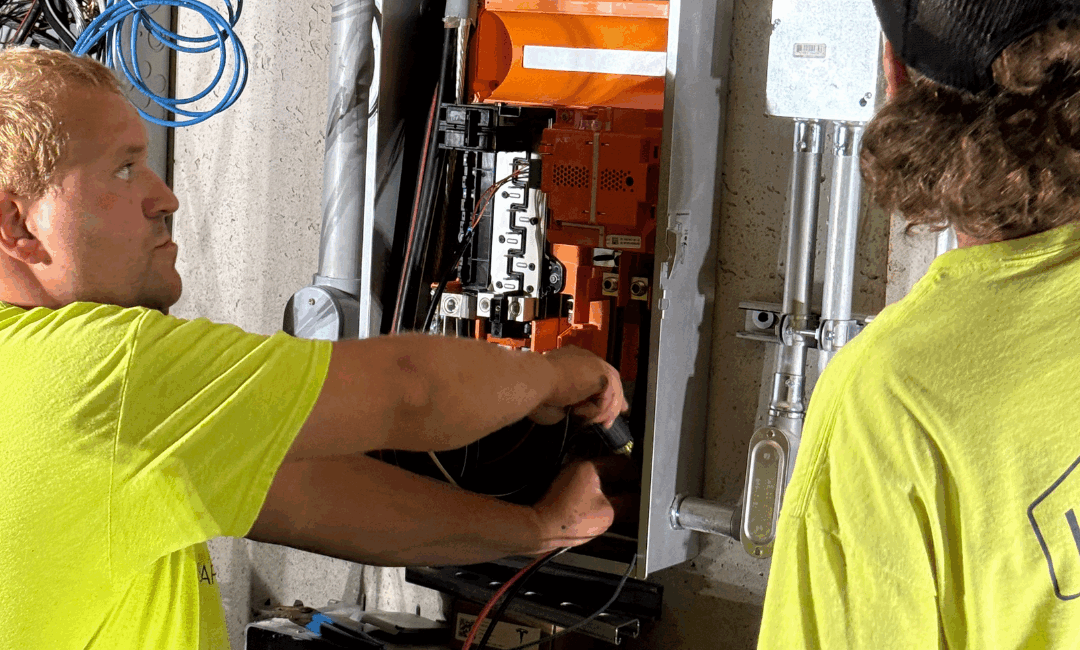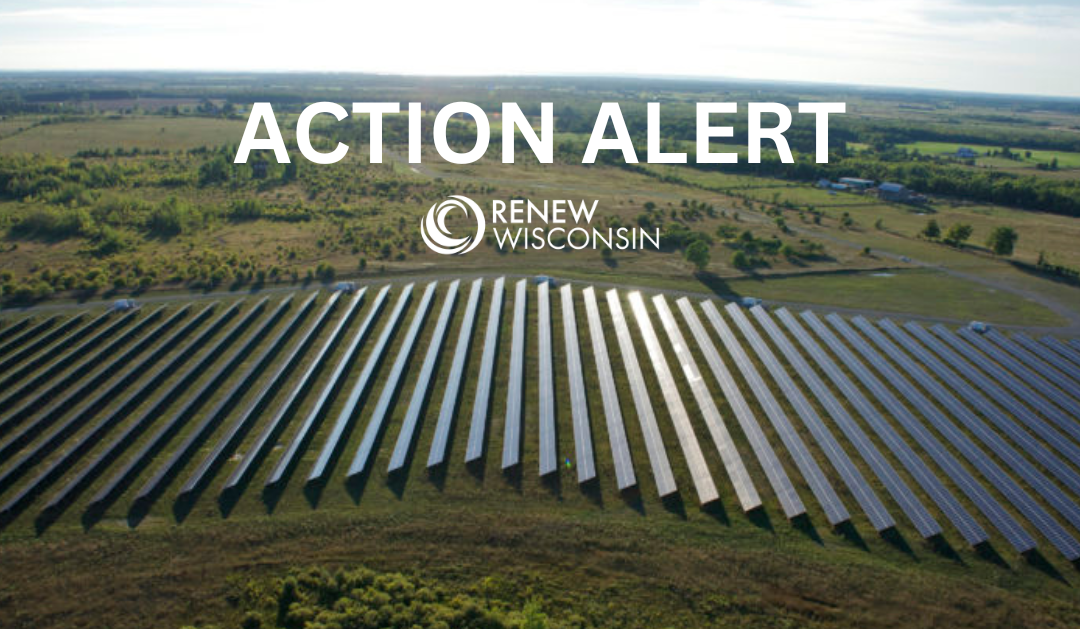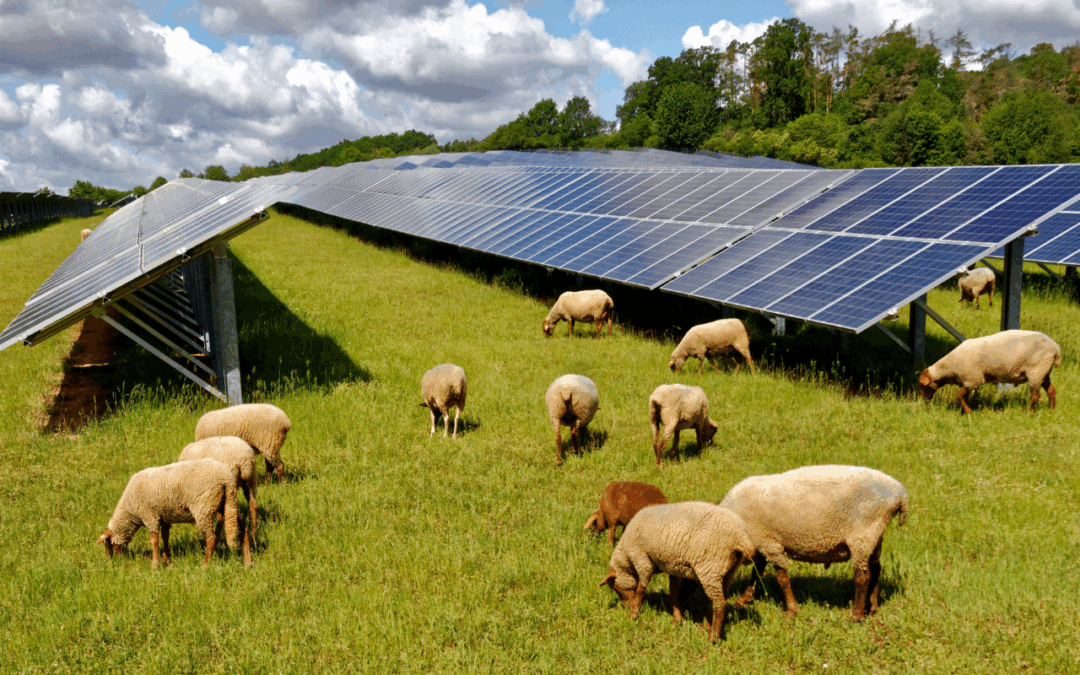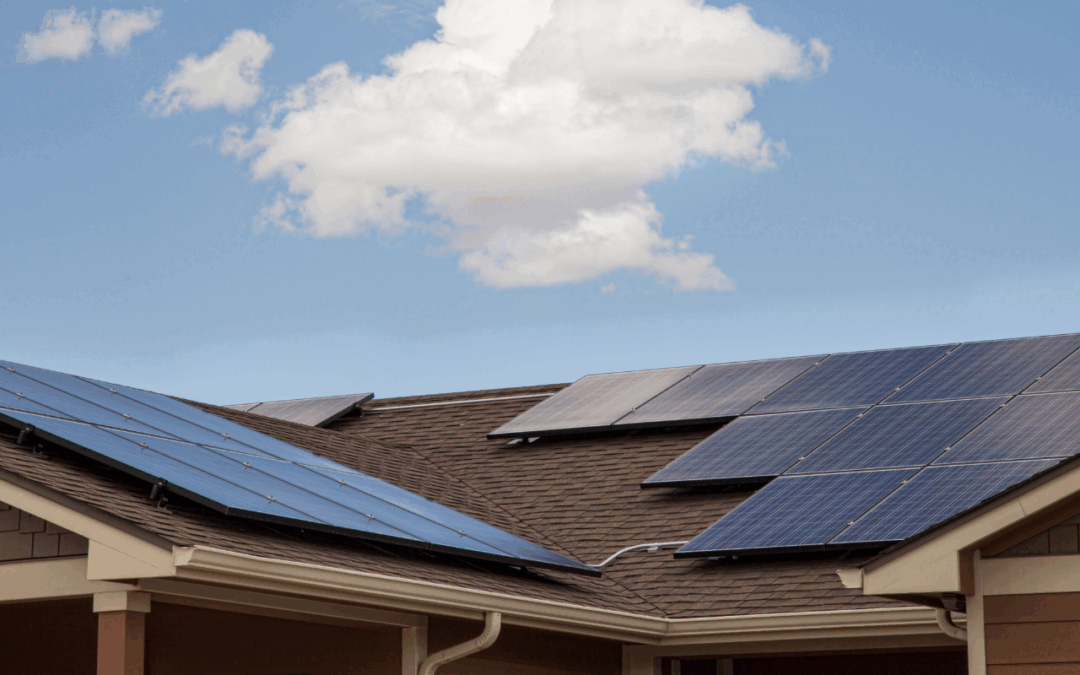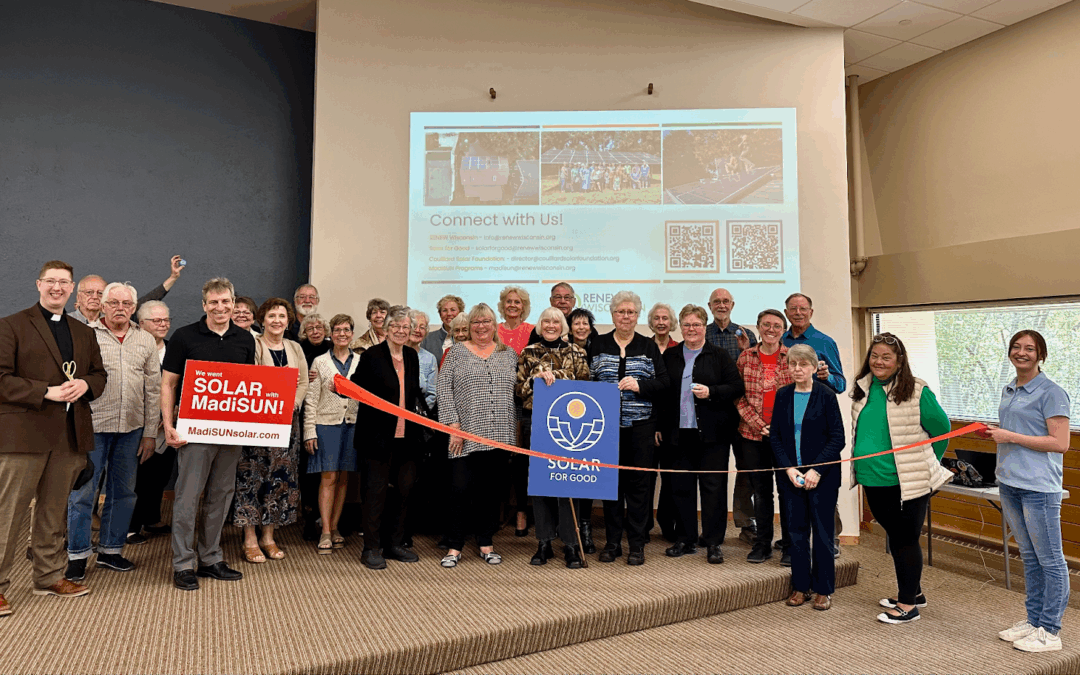
Messiah Lutheran Church Celebrates a Bright Future with Solar Energy
On Sunday, May 4, 2025, Messiah Lutheran Church celebrated the completion of a 64-kilowatt solar array on its rooftop with a heartfelt dedication and ribbon-cutting ceremony, signifying a bold investment in creation care and the future of its ministry.
The ribbon-cutting and dedication service reflected the joy and hope behind the project. Lead Pastor Jeff Vanden Heuvel and Associate Pastor Dan O’Brien led the congregation in prayer and blessing, dedicating the panels to God’s work of renewal and stewardship. Members of the Building Team, including John Nerad and Business Manager Tim Coulthart, were recognized for their leadership, along with the Parish Council, which supported the vision from start to finish.
A Mission of Service, Extended to the Earth
For more than 60 years, the church has been a place of welcome, service, and love for its Madison community. Guided by the mission “to be the heart and hands of Jesus to our neighborhood, city, and the world,” Messiah has long lived out its values through food and supply drives, youth and senior programs, and partnerships that strengthen local schools and organizations.
“We’ve come to realize one huge aspect of our faith is advocacy,” Pastor Dan said. “Advocating for social justice is vital, but none of that will matter if our world becomes too toxic to live on. Taking real steps to improve the health of this planet is so important, and this solar project is one way we are responding to our responsibility as stewards of the earth.”
Powering Ministry with the Sun
The new rooftop solar array, installed by Eagle Point Solar, consists of 121 panels and is anchored with concrete blocks to protect the roof. The system will generate approximately 85,000 kilowatt-hours of electricity each year and offset 98 percent of the church’s annual energy use.
In addition to powering the church itself, the panels also power compassion, learning, and justice for neighbors near and far. The roughly $9,000 annual utility bill savings will flow back into Messiah’s many community partners, including Goodman Community Center, Porchlight, Second Harvest Food Bank, and many others. These organizations provide year-round support to local children and families in need.
Funding a Sustainable Future
The church approached the decision to invest in solar with both practicality and financial benefits in mind. Solar will reduce operating costs, protect against rising energy prices, and free up resources for mission-driven programs while serving as a public testament to the congregation’s values. Messiah utilized its capital funds project reserve and a Focus on Energy incentive to develop its solar project. The Couillard Solar Foundation, through the Solar for Good program administered by RENEW Wisconsin, helped offset costs further by donating half the solar panels for the project.
“As we move into the future, we at Messiah feel that a part of our calling is to be good stewards of the earth,” Pastor Dan said. “Being the heart and hands of Jesus, in our vision, is to both respond to the direct needs of our communities and to work toward dismantling systems that have caused harm to people and the world. This solar project is one way we hope to do this in a positive way.”
Faith Through Action for Generations to Come
Messiah’s commitment to sustainability is deeply intertwined with its broader work. From supporting students at Kennedy Elementary School with backpack drives and bus funding, to hosting a robust Senior Adult Ministry, to providing rental assistance and aid through the Gundlach Family Fund, the church consistently meets community needs with creativity and compassion. Messiah also actively engages in racial and social justice work through partnerships with Nehemiah and MOSES, book groups that challenge bias, and its public stance as a Reconciling in Christ congregation welcoming LGBTQIA+ individuals.
As the sun now powers Messiah Lutheran Church, its light shines beyond the walls of the sanctuary, fueling ministries that nurture children, comfort the elderly, advocate for justice, and uplift neighbors in need. The solar project is a legacy that will serve generations to come, proving that faith, action, and sustainability can work hand in hand to bring healing to the world.

